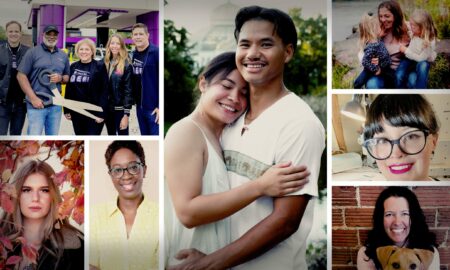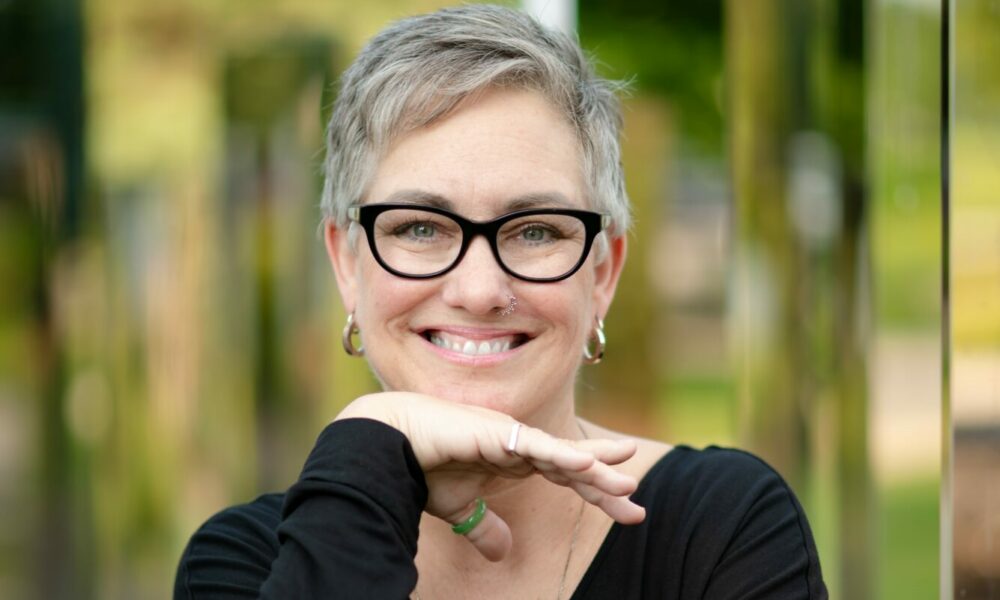

Today we’d like to introduce you to Terri Allred.
Hi Terri, we’d love for you to start by introducing yourself.
When meeting new people, I always like to ask, “What do you like to do?” rather than “What do you do?” For this reason, I will start with that question as I introduce myself.
I spend my time in nature preferably by water. While I grew up in North Carolina going to the ocean, I learned to love the energy of lakes and streams in Minnesota. I love to dance, make pottery, read, and snuggle my dogs. While I used to be a full-on extravert, since the pandemic, I need introverted recovery time.
Asking the question “What do you like to do?” is not just an interesting conversation starter, but it is a value that I hold sacred. We are more than our work. We are whole people who thrive best when in balance. I learned this lesson the hard way.
From early on, I knew I wanted to be of service to people. I found myself serving as the informal peer counselor of friends in high school and then began training for that role in college. By the time I completed college, I knew that I had a calling. For me, it wasn’t necessarily a divine message from above as much as it was a burning passion from within.
I knew I was meant to help people, women specifically; overcome challenges, sexual assault, and domestic violence specifically. I threw myself into that work first as an intern learning crisis response at a sexual assault nonprofit. Then after graduate school, I was hired as a therapist at a comprehensive child sexual abuse program. The work was excruciatingly painful, traumatizing, and overwhelming. Yet, I persisted.
I knew I was making a difference in an issue that most people couldn’t bear to acknowledge, much less impact positively. I realized that I couldn’t fully understand the societal, interpersonal, and personal experience of violence unless I understood the people committing that violence. In the victim advocacy field at that time, offenders were objectified and demonized. So, I began working with people who committed sexual and domestic violence and did so in outpatient, inpatient, residential and prison settings.
My life was my work. My work was my passion. My passion was my calling. And then, a soccer ball hit me in the head traveling 60mph. I was ok. No, I was concussed. No, I had a traumatic brain injury (TBI).
The result of that sudden experience, an experience that happened when I had a 4-year-old and a 6-month-old, was devastating. I couldn’t work. I couldn’t take care of my kids. I couldn’t think. I was in constant, excruciating pain. I wasn’t sure if I was going to get better or even if I wanted to. I thought about ending my life.
I wish at this point in the story I could say that a miracle happened. Or that I found an inner light that helped me get through it. While this is a story of transformation, the transformation wasn’t magical. It was painful, gritty, and not at all pretty.
It took me years to be able to work again. I found that only a couple of friends had the stomach for the intense distress of my experience. I was isolated, in pain, and without access to the part of me that had created my identity- my work, my passion, my calling.
While I am sure my children inspired me to get up every morning, and knowing myself, I delighted in them every moment; I have no real memory of the 4 years or so after the injury.
I promised a transformation in this story and there was one, but it was hard won rather than an epiphany. I began taking a belly dance class as a part of rehab. The details are boring but basically, we needed to stimulate my vestibular system to try to positively impact my constant dizziness. I grew up as a dancer but stopped dancing outside of social circumstances in adulthood.
I was so lucky to find a dance instructor, Margaret Kay, who was also an RN. I explained my health challenges to her, and she not only understood but was incredibly supportive. The first class I made it 5 minutes before I had to sit in the corner with my head between my knees. A year later, I was teaching dance locally in Chapel Hill, NC. A couple of years after that I was dancing nationally, had an instructional DVD, published a book about belly dance, and founded an international dance conference.
Belly dance saved my life.
It helped with my dizziness, social isolation, and depression. I found the joy and healing power of movement that I knew as a youth but had lost as I grew into adulthood. I was able to begin working again, first, as a contractor working small projects, then with a part-time job, and finally 8 years post TBI working full time again.
But this time, I knew that it wasn’t my work. I was so much more. I was a person not defined by what I did, but what I liked to do.
Thanks for sharing that. So, maybe next you can tell us a bit more about your business?
Now, I do several things. First, via Allred Coaching and Consulting, I am a nonprofit and small business coach and consultant. I mostly focus on helping leaders and their teams communicate better and use conflict as a catalyst for change. My official mission is “to empower leaders to achieve transformational results through team development.”
While I do many things including strategic planning, grant writing, executive coaching, and more, my passion is around helping people communicate successfully and helping leaders create a culture of belonging where everyone thrives.
Interestingly, my focus on communication in conflict began when I was facilitating sex offender treatment groups. I had grown up in a family where conflict evoked silence. Ignoring conflict was the norm. So, I was not skilled at managing tension or conflict. However, in the role of therapist facilitating sex offender treatment groups, I had to learn how to confront people gently but firmly about their most horrific behaviors.
I had to bring compassion and empathy while balancing that with a firm and resolute message that the behaviors were unacceptable, illegal, and traumatic for their victims. I quickly became comfortable with tension and conflict. I became more than comfortable with it. I began to understand the transformative power of honesty in conflict. I saw time and time again, under the most horrific circumstances, that conflict was a catalyst for growth.
My second professional passion is helping women facing life transitions harness the power of their unconscious to create a life they love. I have almost completed my certifications as a Neuro-linguistic practitioner (NLP). That means I am a person who helps others understand their unconscious.
We experience the world through our senses (neuro). Our nervous system takes in information through our visual, auditory, gustatory, olfactory, and kinesthetic systems. Language (linguistic) is how we store the experience and give it meaning.
We use language and words to understand and communicate what we experience through our senses and inside our minds through our internal dialogue. Finally, programming is how we use programs or stories, patterns, and strategies to achieve our goals. In short, NLP is the study of subjective experience and how that affects our behavior.
Having faced many life transitions, I have had the opportunity to notice that transitions are growth opportunities. They create fertile ground for change. They are times when we are willing and ready to see the world through a different lens.
Many people, when faced with transitions, yearn to make changes to help them live a life more in alignment with their values and priorities. However, despite the desire to change old patterns and beliefs, they often fail at making lasting changes. This is because they are only approaching transformations through their conscious mind.
I vision transformation during transitions as having four pillars:
1-Somatic/embodiment – Our bodies hold trauma, stress, and memories that need to be released to heal. I bring my experience as a dance instructor and student of movement to the work of releasing and balancing the body for optimal health and growth. I utilize Emotional Freedom Technique (EFT) otherwise known as tapping, to release and regulate our emotional states, decrease stress, and improve overall coping. Paired with many other strategies, individuals can learn to manage and release their daily stress, anxiety, and tension along with impacting any negative experiences that their body is holding.
2. Conscious mind – People transform by deciding that they want to do so. They can vision a new future that is aligned with their values and consistent with their identity. They learn to let go of limiting beliefs and old patterns that are holding them back from being who they truly want to be. Using polyvagal theory, principles from cognitive behavioral and dialectical behavior practice, and many more concepts, people learn to better understand the messages they are giving themselves and how that is impacting their functioning. Throw in a healthy dose of self-compassion and people are primed for transformation.
3. Unconscious mind- As I mentioned before, the unconscious mind manages information by sorting it into patterns and strategies that are called programs. We get so much information through our senses, our brain must create a way to sort through it all. Our conscious mind can process about 5% of what we experience. Ninety-five percent of what we experience is processed through the unconscious mind which relies on programming or past stories to make meaning out of the information.
Working on the unconscious mind is simply finding the old patterns, mostly created before we were 7 years old, and replacing them with patterns that align with your conscious intentions and goals. For many of us, we only create change when we are in a highly emotional state, like during a life transition!
4. Energetic/intuitive- Whether you believe in a higher power, align with your inner knowing, or feel the energy of yourself and others, this spiritual/energetic/intuitive part of our experience is an essential part of the transformation. I am a Reiki Master and am highly intuitive.
Helping people understand and tap into their connection to what is beyond or inside of them which can’t completely be named or understood is the final pillar of transformation. People rely on their spiritual beliefs, internal knowing, or intuition to make meaning when they are facing a transformation.
To help people through these transitions, I offer individual coaching and consulting and am opening a group program called Transform Your Life. This program is open to women who are facing a life transition.
What sort of changes are you expecting over the next 5-10 years?
I bridge two industries, coaching and consulting.
I believe that coaching will become a regular experience for most people who are facing challenges, transitions or just wanting to create a life they love. Coaches come in a lot of varieties, life, success, executive, health, etc. Coaches are so much more accessible than they used to be. People can achieve quick and lasting results when utilizing coaching.
Consulting is also likely to become more important in the future. As businesses and nonprofits need specialized skills targeted to a specific area, I think they are finding that utilizing coaches is more targeted and cost-effective.
Contact Info:
- Website: https://allredconsulting.com/
- Instagram: https://www.instagram.com/phoebemojomom/
- Facebook: https://www.facebook.com/allredcoachingconsulting
- Linkedin: https://www.linkedin.com/in/terri-allred-06319ba/
- Other: https://allredconsulting.com/transform-your-life-coaching
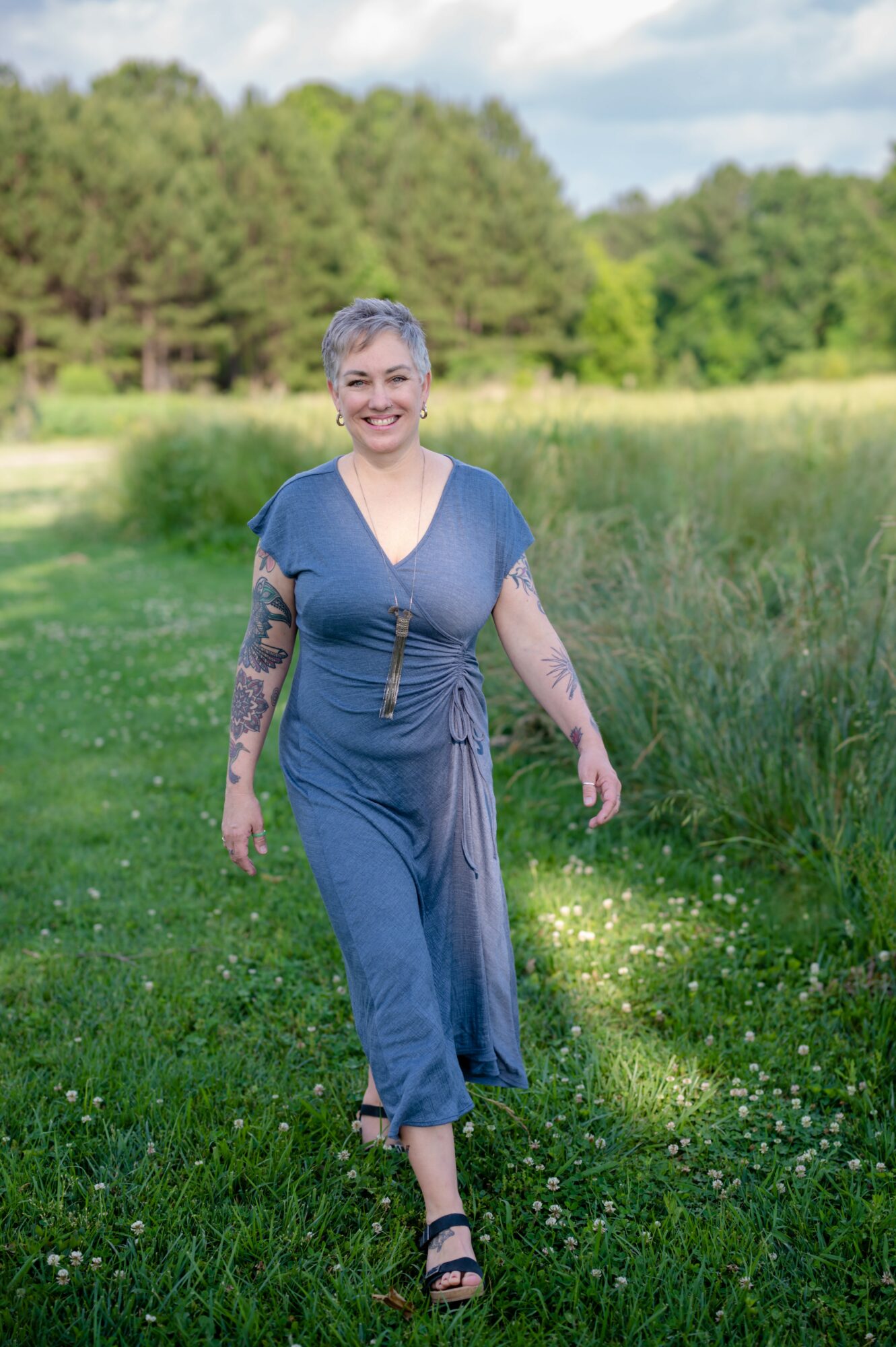
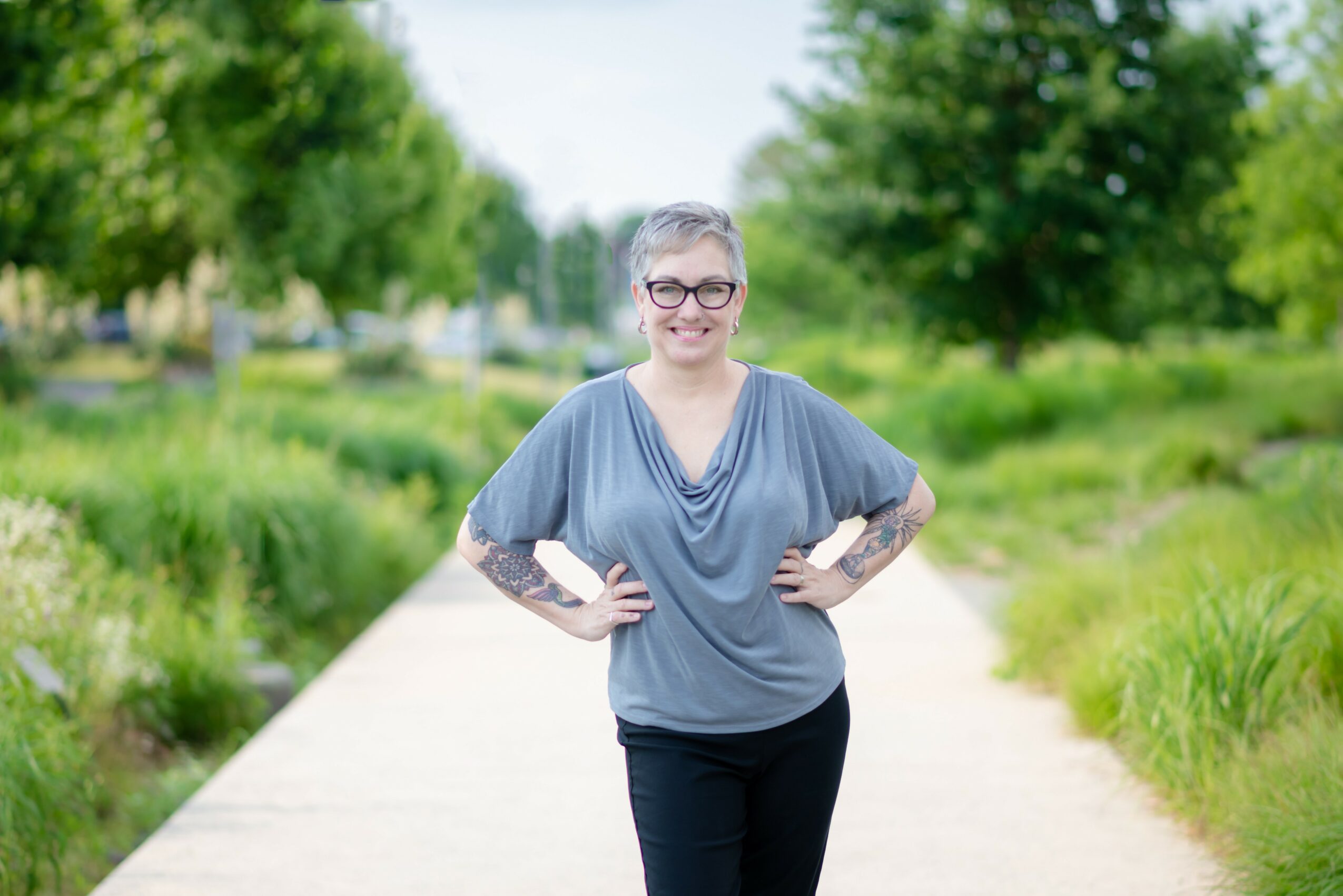
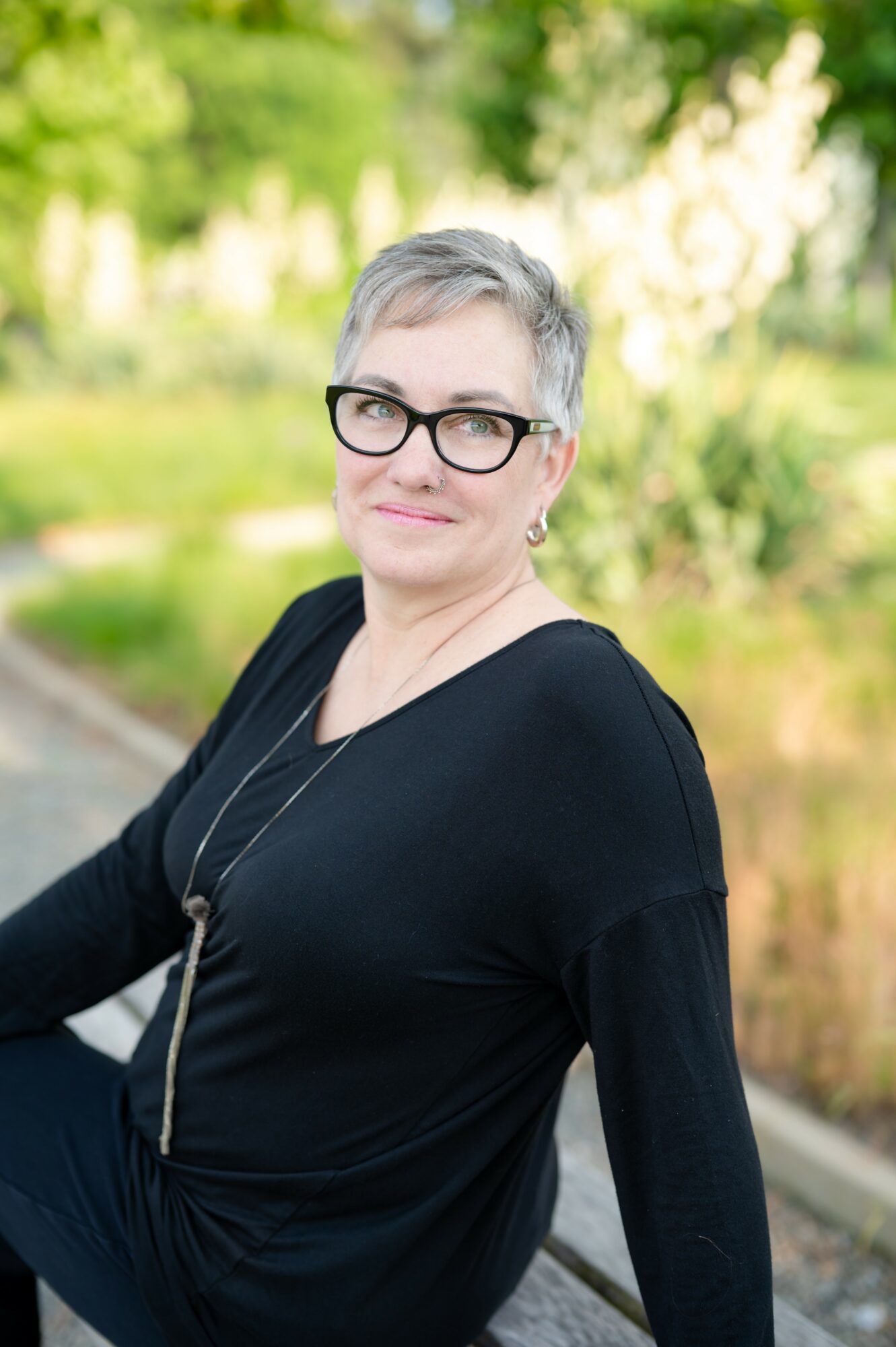 Image Credits
Image Credits
Alan Tremmel

